Discovering a gem in a pipe shop is a thrill for any aficionado. This narrative follows the acquisition and restoration of a Peterson 1910 Patent Reproduction pipe, a piece that exemplifies the joy of collecting and the satisfaction of bringing a cherished item back to life. The story highlights the passion of pipe enthusiasts and the collaborative spirit within the collecting community.
The author’s interest in Peterson reproduction pipes was sparked by dedicated blogs such as Mark Irwin’s “Peterson Pipe Notes” and Jim Lilley’s “Peterson Pipe Connoisseur.” During a visit to JB Hayes, a favored pipe shop in Winchester, VA, a unique briar pipe caught the author’s eye. Despite its excellent briar condition, the P-lip stem was significantly damaged at the button. While the pipe bore the “Made in Ireland” COM stamping and a “1910” silver hallmark, the author suspected it was a reproduction. The tarnished silver bore the mark “M,” which, according to the Peterson hallmark dates chart, corresponds to 1998, confirming its status as a Reproduction piece. Initially, the damaged stem led the author to put the pipe back, but a subsequent overnight reflection prompted a return to the shop. A deal was struck, driven by the hope of repair or obtaining a replacement stem directly from Peterson, who confirmed a replacement could be shipped from Ireland for approximately $50. The author also found an image of the original Reproduction set, which included four pipes dated 1903, 1905, 1909, and 1910.
The Pipe as Found
Here are the initial images of the pipe as it was discovered in the shop:
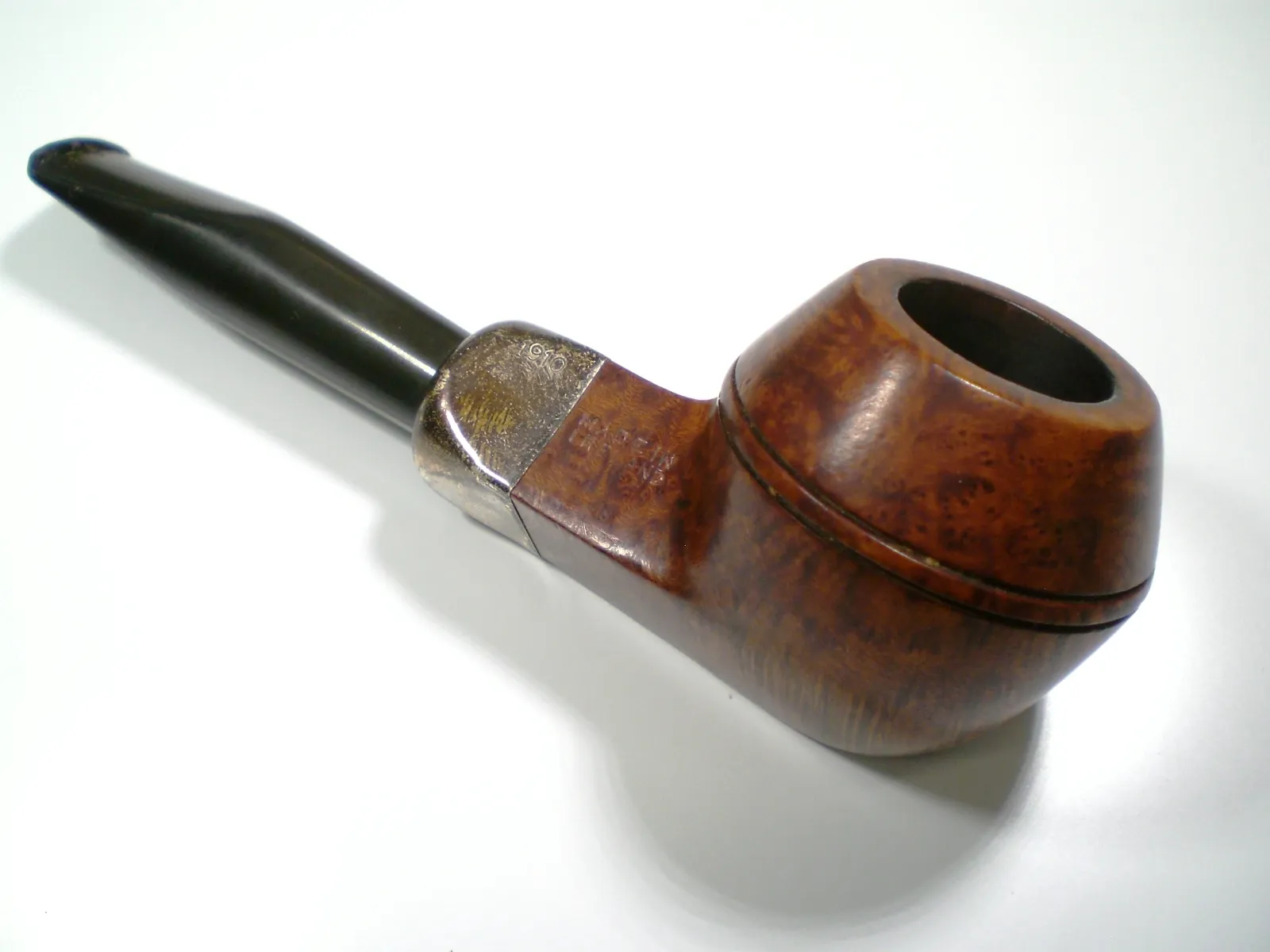 Peterson_1910_Patent_Before (4)
Peterson_1910_Patent_Before (4)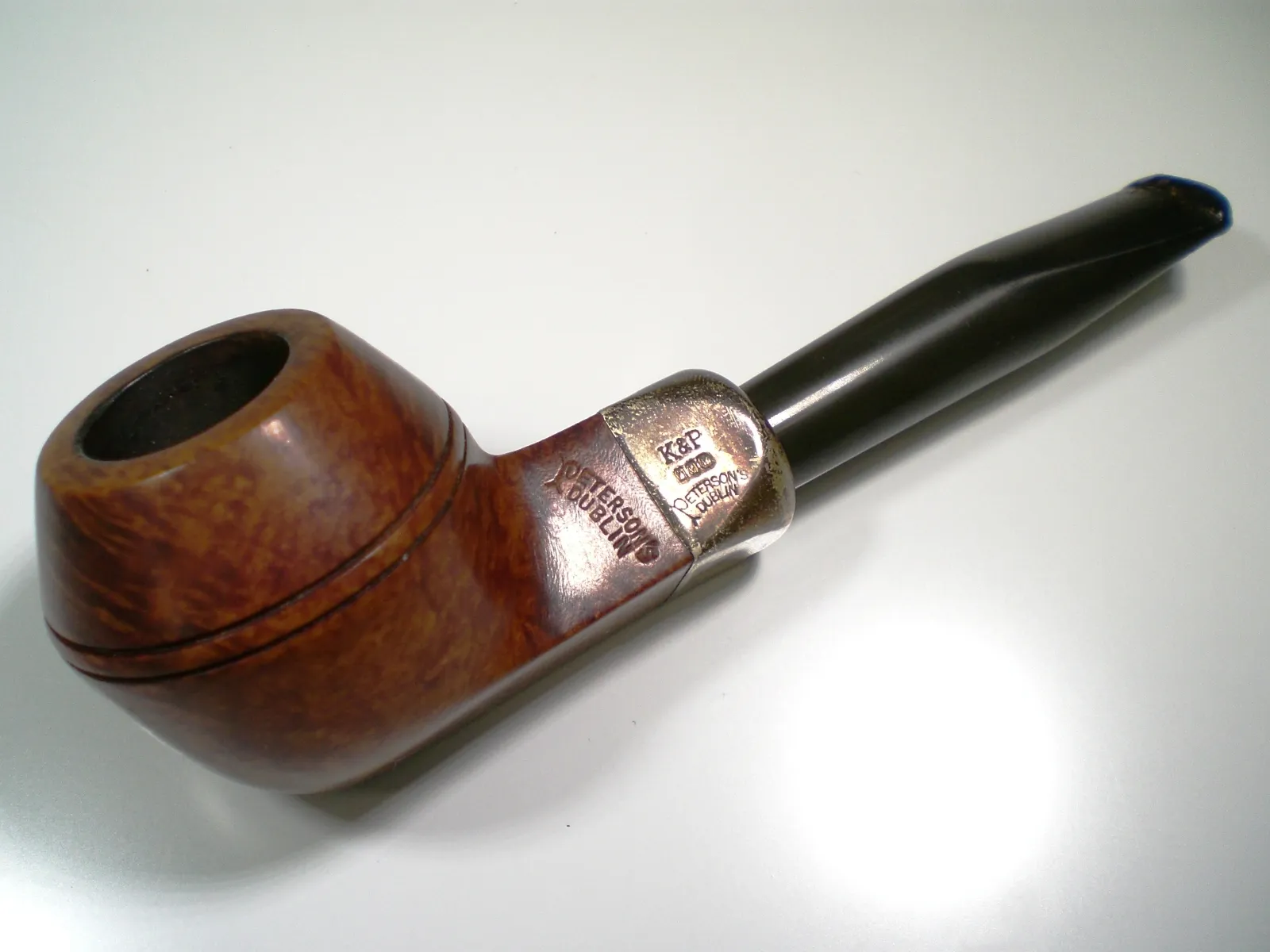 Peterson_1910_Patent_Before
Peterson_1910_Patent_Before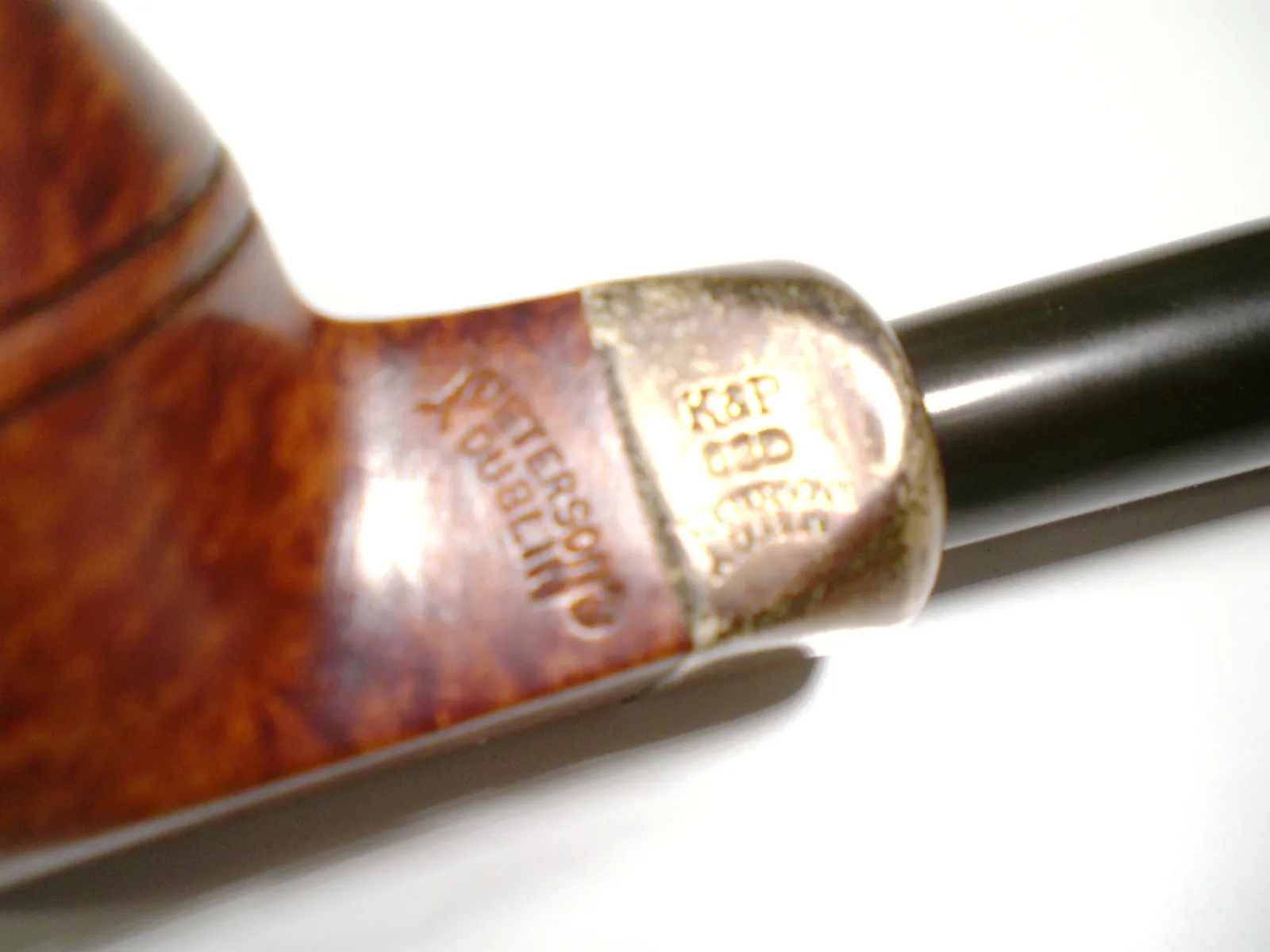 Peterson_1910_Patent_Before (1)
Peterson_1910_Patent_Before (1)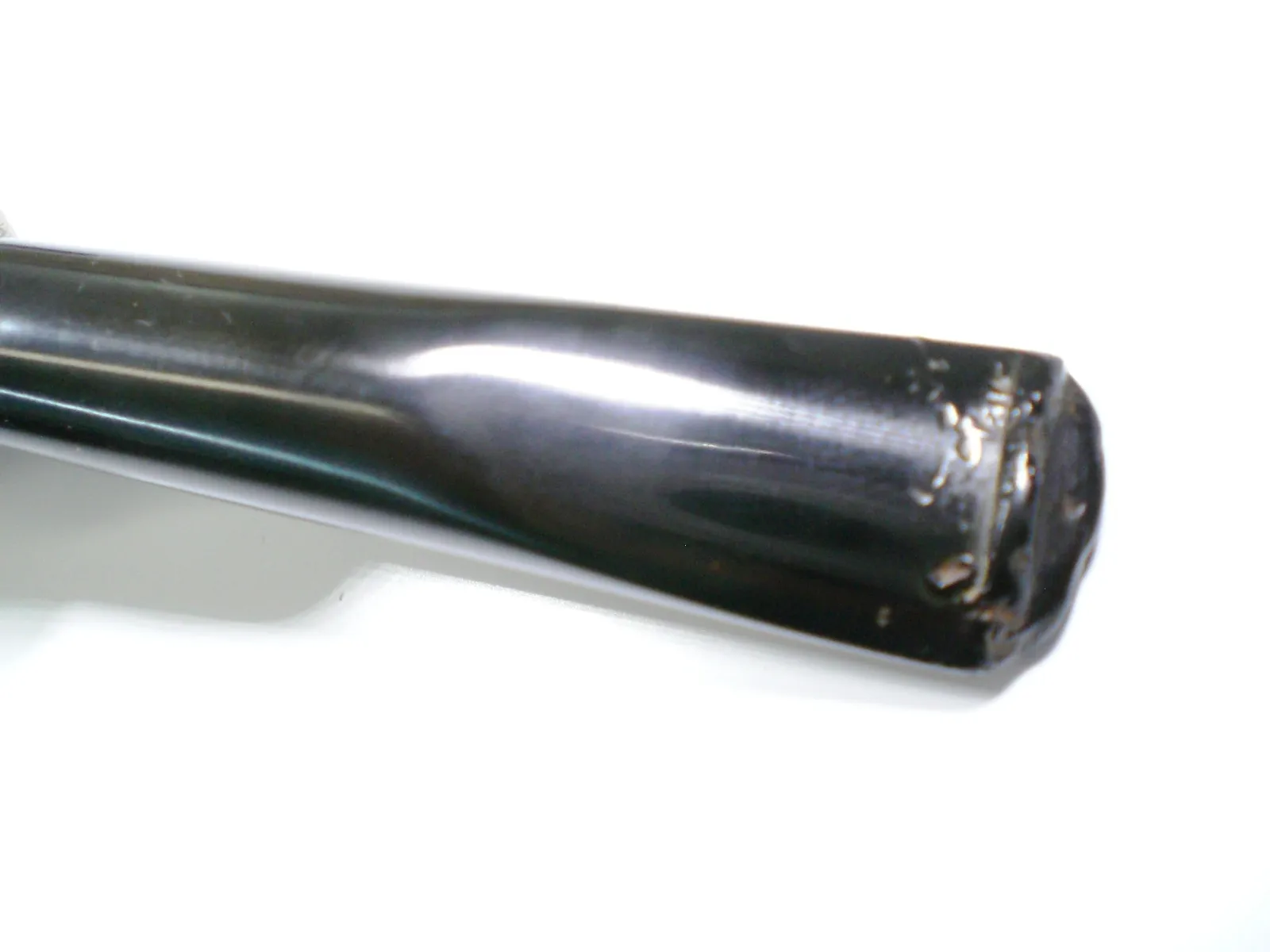 Peterson_1910_Patent_Before (3)
Peterson_1910_Patent_Before (3)
Community Collaboration and Restoration
The pipe was then posted on the PipesMagazine.com forum, where George Dibos of Precision Pipe Repair noticed the post. George owned a matching billiard Reproduction pipe and, having a preference for fishtail stems, had already crafted a replacement for his own pipe. He offered the original P-lip stem to the author, which was gladly accepted.
The restoration process for the briar involved a light sanding of the bowl’s interior, followed by a soak with alcohol and sea salt. The bowl was then buffed with several coats of carnauba wax. The author used a jeweler’s cloth to polish the tarnish from the silver collar. The replacement stem, described as being in like-new condition, fitted perfectly, completing the pipe’s restoration.
The Collector’s Challenge Continues
With the 1910 Patent Reproduction pipe restored, the author’s focus shifted to completing the set. The hunt is now on to locate the remaining three pipes from the collection.
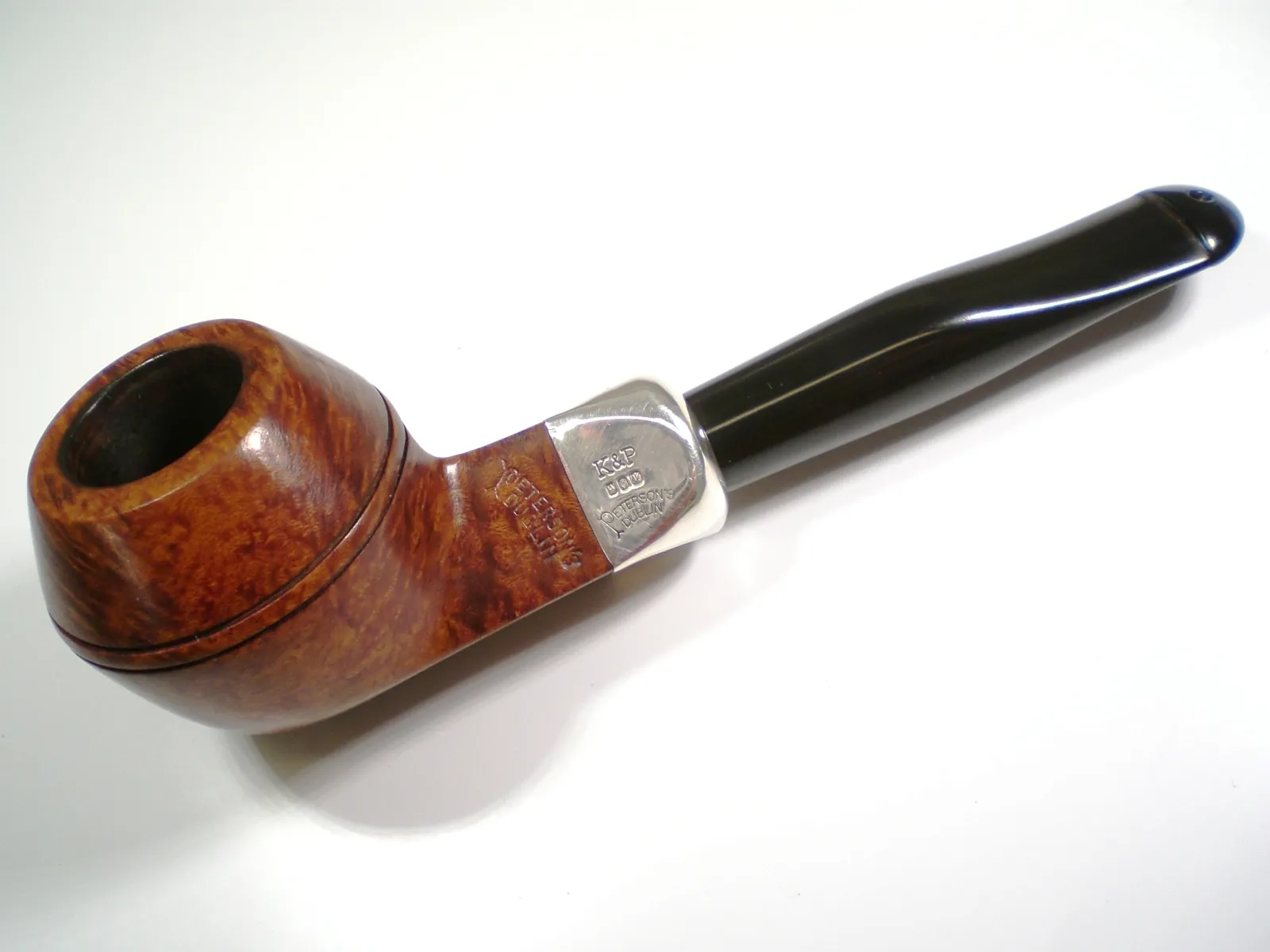 Peterson_1910_Patent_Gallery
Peterson_1910_Patent_Gallery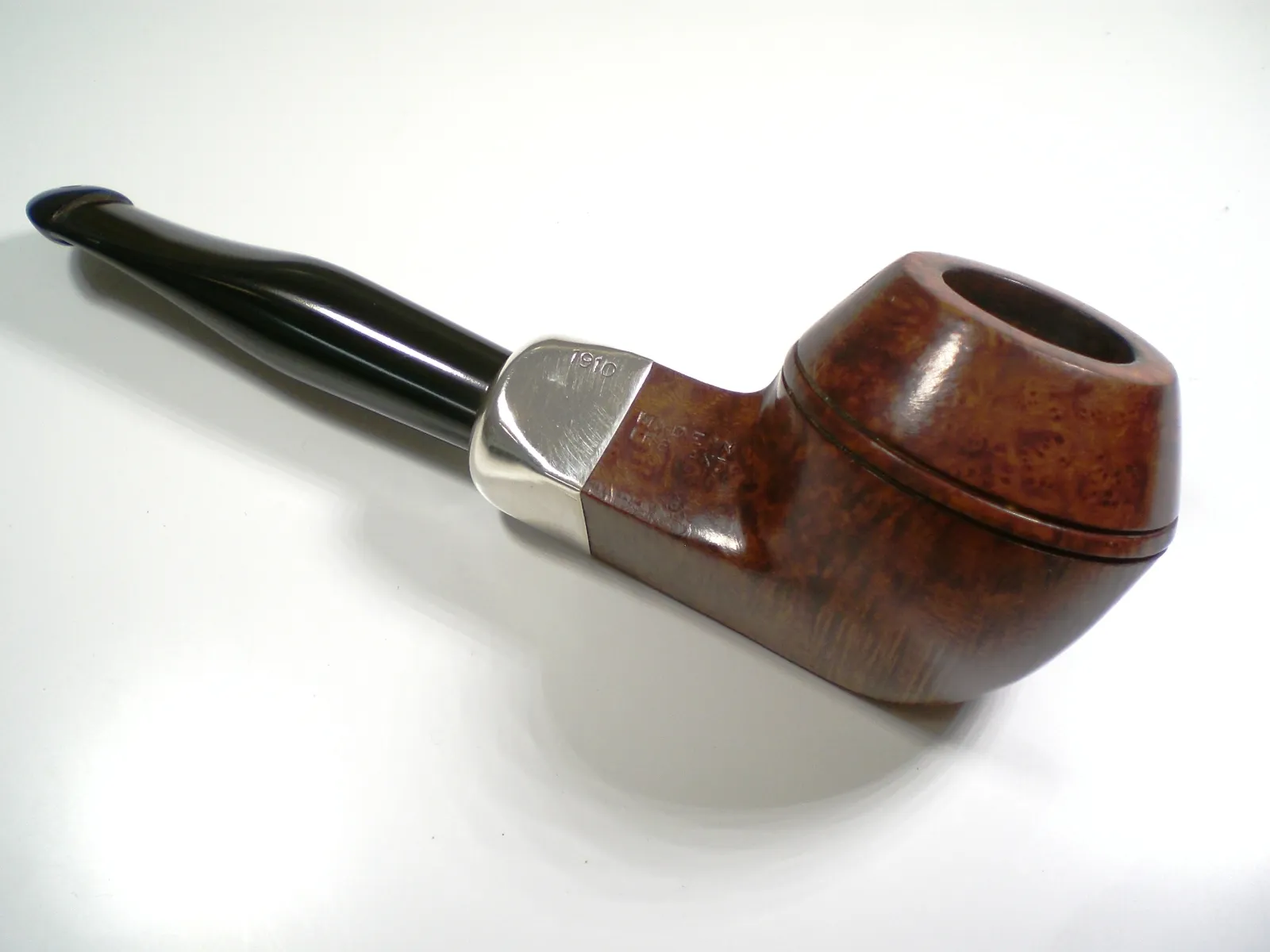 Peterson_1910_Patent_Gallery (4)
Peterson_1910_Patent_Gallery (4)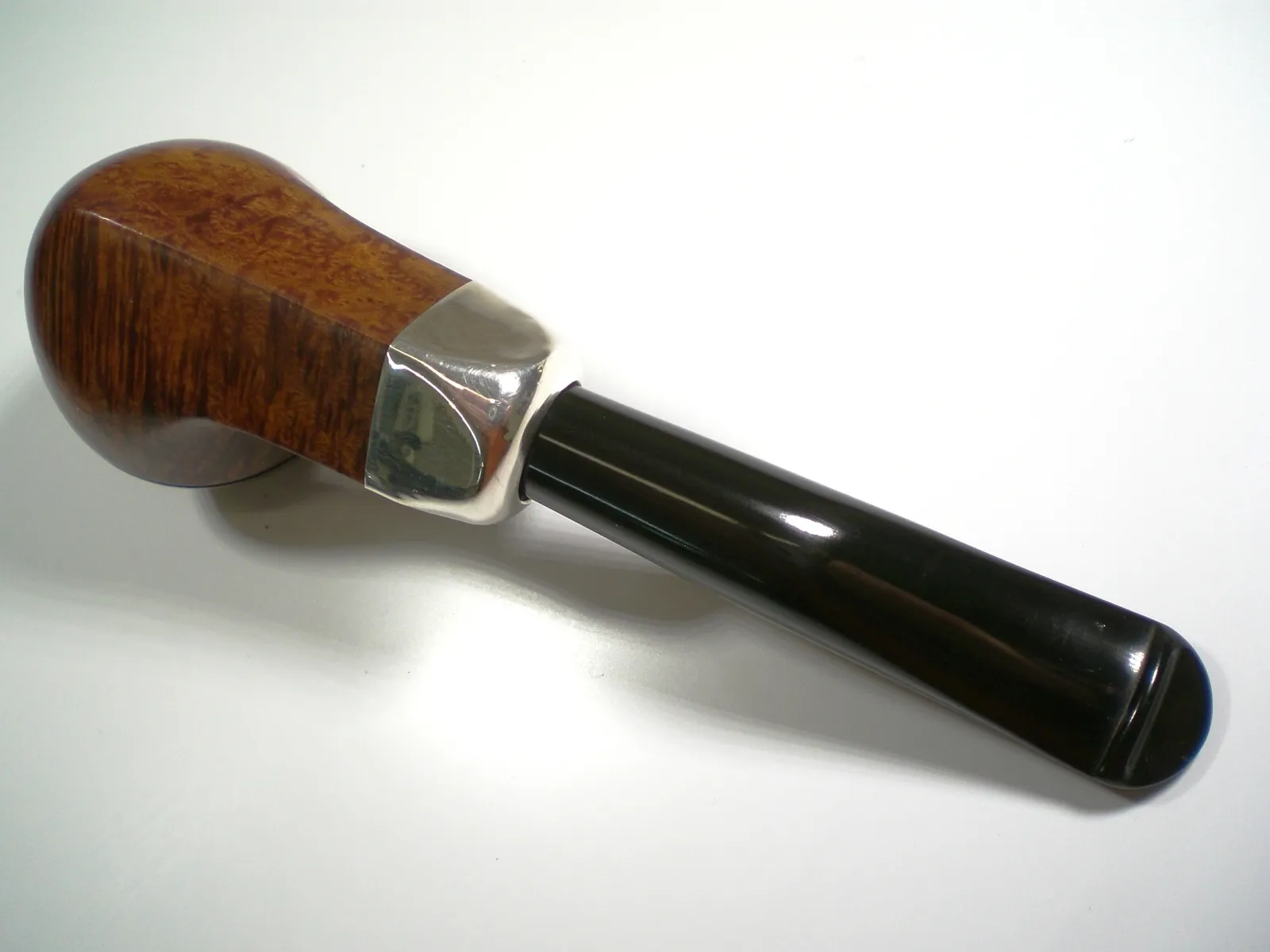 Peterson_1910_Patent_Gallery (1)
Peterson_1910_Patent_Gallery (1)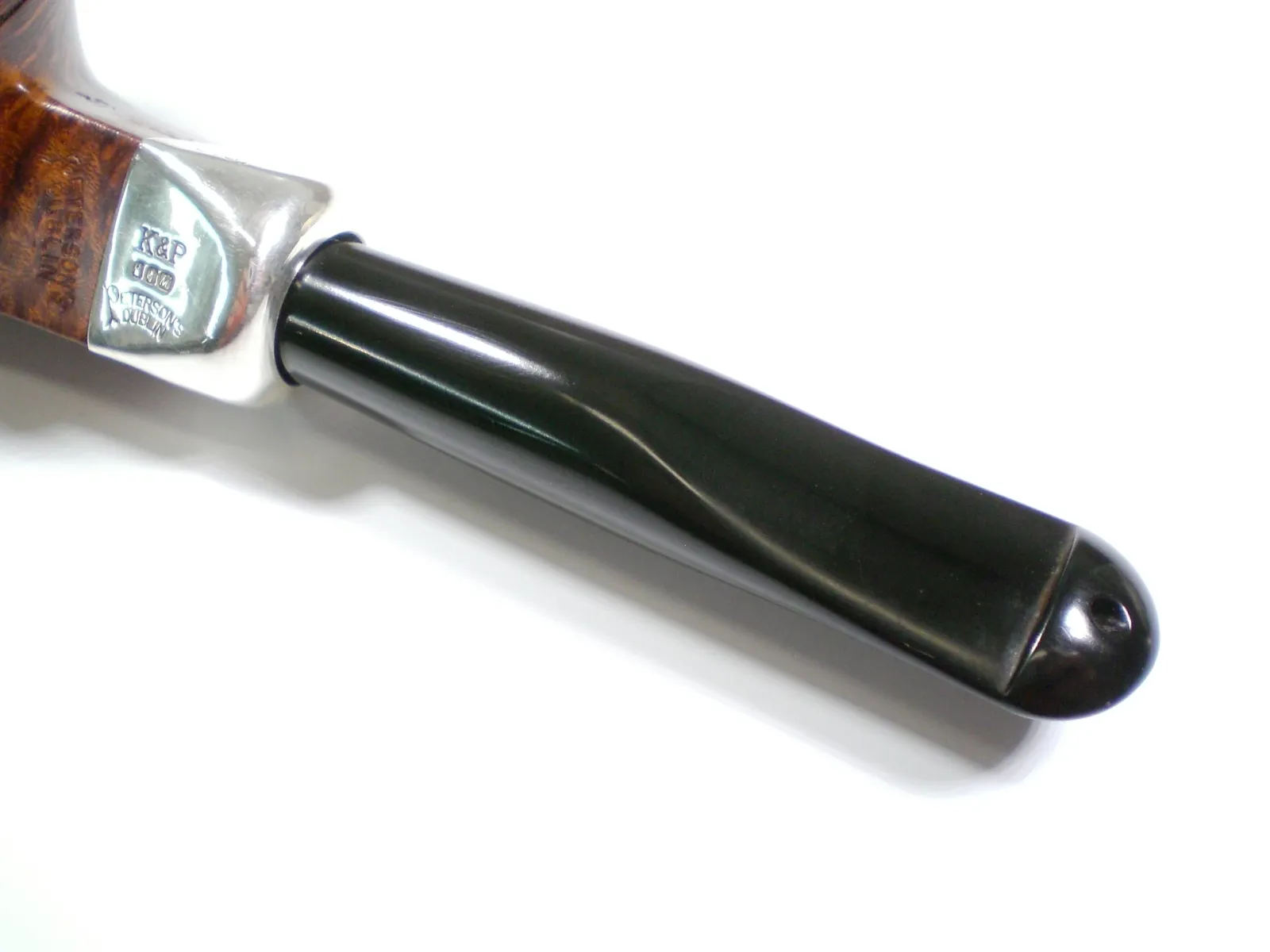 Peterson_1910_Patent_Gallery (3)
Peterson_1910_Patent_Gallery (3)
The author also shared images related to the Peterson 1910 Patent nomenclature:
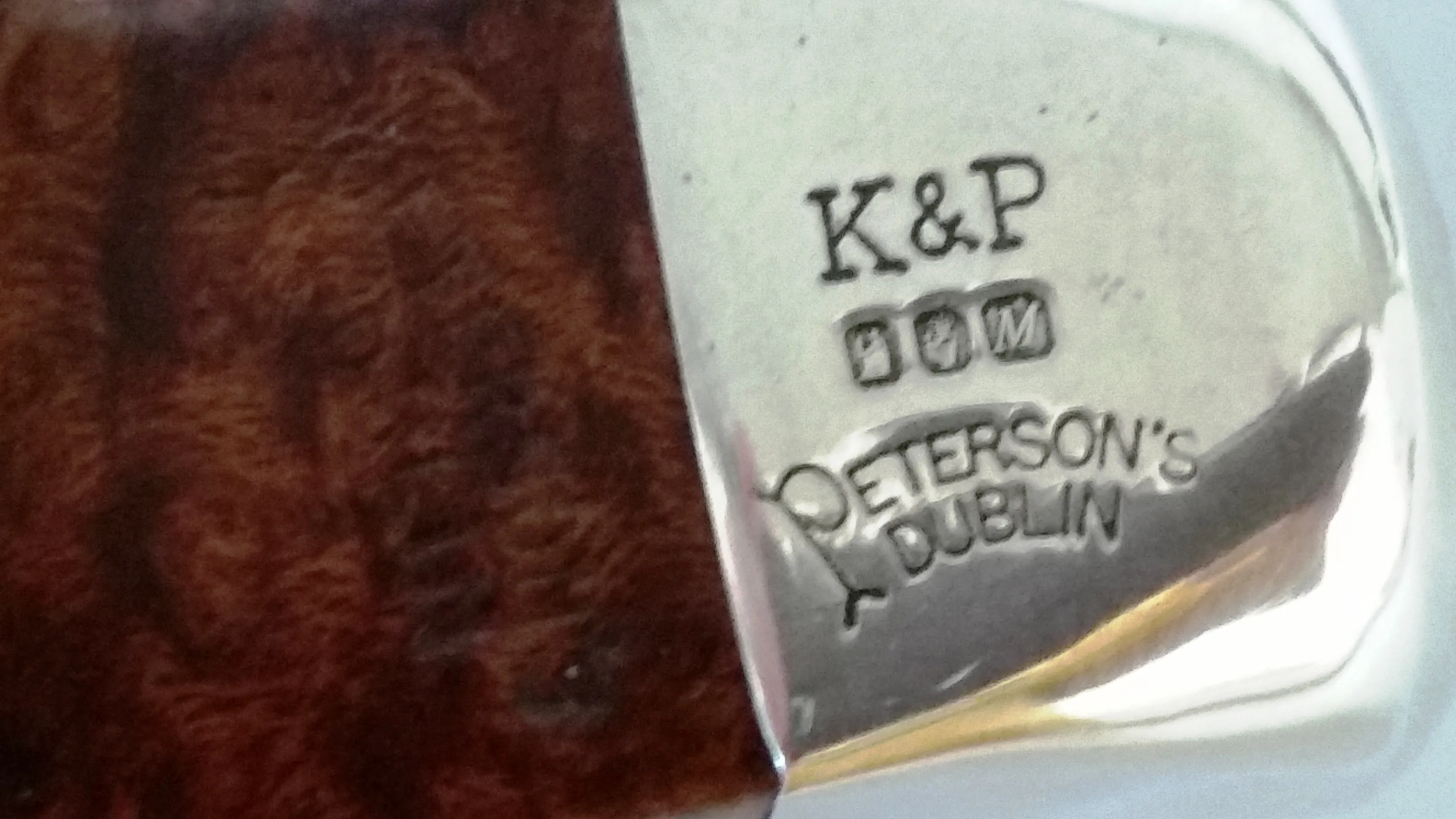 Peterson_1910_Patent_Nomenclature
Peterson_1910_Patent_Nomenclature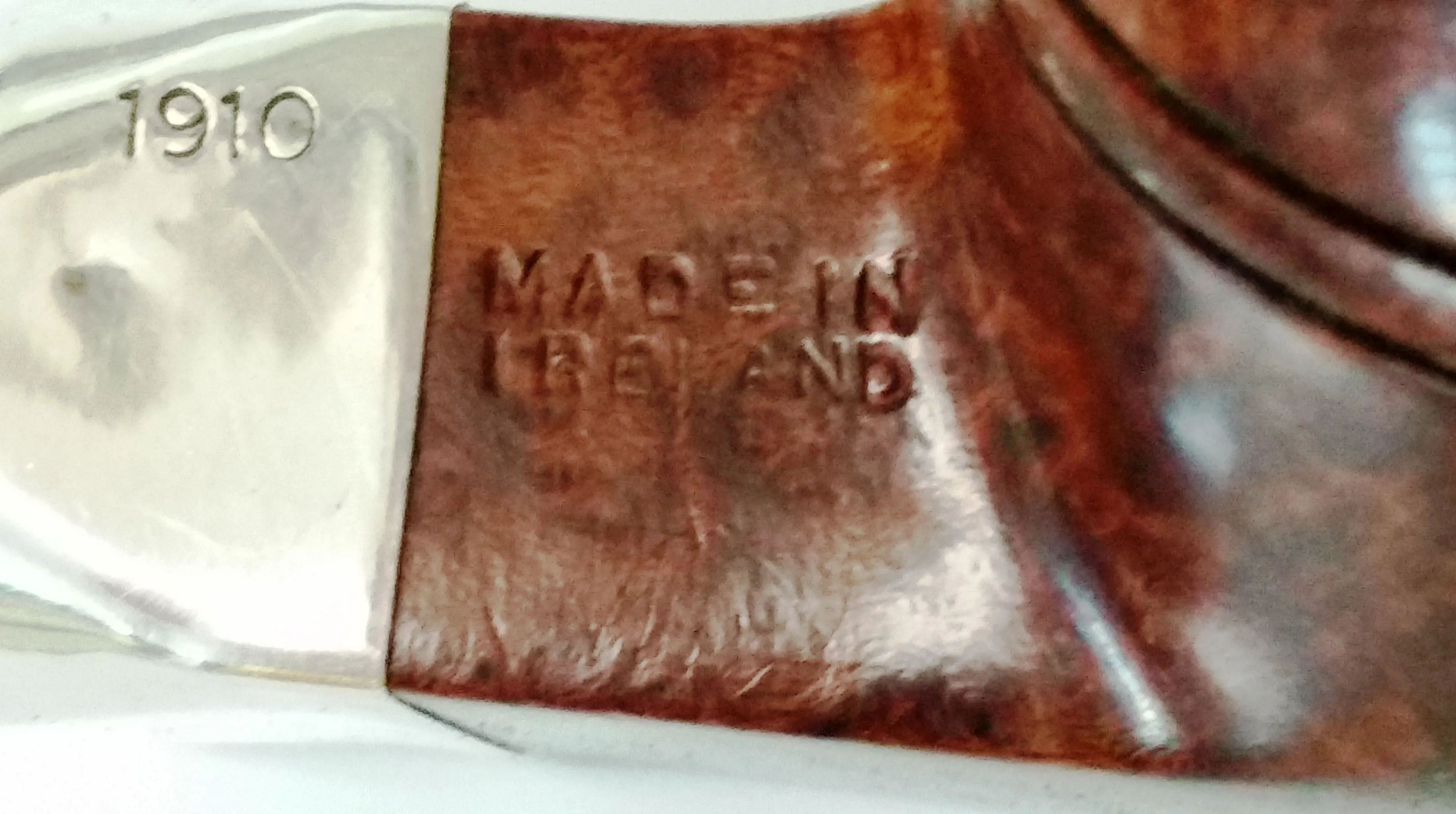 Peterson_1910_Patent_Nomenclature (1)
Peterson_1910_Patent_Nomenclature (1)
An Unexpected Addition
An update on August 2, 2015, brought exciting news. Mark Irwin, showing remarkable thoughtfulness, contacted the author and offered the four-pipe case for the Patent Reproduction set. This thoughtful gesture added another layer to the collecting journey, further fueling the author’s enthusiasm for the ongoing hunt.
 Case for the Peterson 1910 Patent Reproduction Set
Case for the Peterson 1910 Patent Reproduction Set
This experience underscores the rewarding nature of pipe collecting, combining historical appreciation with the tactile satisfaction of restoration and the camaraderie found within the collecting community. The pursuit of the complete set continues, driven by a passion for these finely crafted pieces of history.
